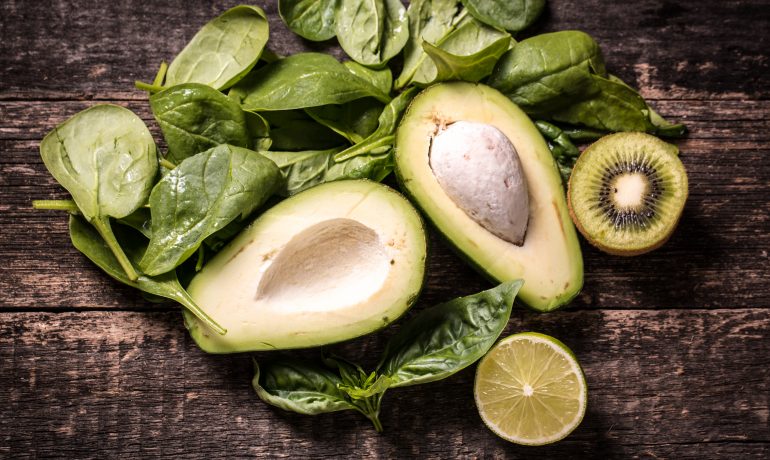If you have any sort of health condition, inflammation is likely to be your enemy. There are many issues that are exacerbated by inflammation, or even start at the blood or vein level as inflammation. For instance, arthritis, irritable bowel disease, diabetes, high blood pressure, and asthma. Changing your diet isn’t a magical cure, but it can certainly be an important step. It will also be a healthy diet in general. Foods that cause inflammation tend to be unhealthy in large amounts. Below are some anti inflammatory foods list or foods that reduce inflammation which you can add to your diet.
Focus on Fruits and Veggies!
It’s no secret that including lots of fruits and vegetables is beneficial in your diet. This is because fruits and vegetables are some of the biggest sources of essential vitamins, and berries also contain pigments that help your body fight against inflammation.
Some important fruits and vegetables that contain vitamin K are:
- Kale
- Spinach
- Turnip greens
- Collards
- Swiss chard
- Mustard greens
- Parsley
- Romaine
- Green leaf lettuce
- Kiwi
- Avocado
- Peaches
In addition to these fruits and vegetables, there are also many berries that are anti-inflammatory, due to containing a dark pigment that fights inflammation on a cellular level. These include blueberries, raspberries, and blackberries, and is also found in cherries.
Peppers, in particular, are a superfood when it comes to anti-inflammatory fruits and vegetables. The most important kind of pepper for an anti-inflammatory diet is red pepper. Red peppers have a large amount of Vitamin C, which is an anti-inflammatory agent. Red pepper also includes bioflavonoids, which have been shown to reduce inflammation – in particular, beta-carotene, quercetin, and luteolin.
The Benefits of Fiber
Fiber is a vital part of your diet. It also helps fight inflammation and many diseases such as irritable bowel disease. Generally, the less refined an individual type of grain is, the more beneficial it will be for reducing inflammation. Unrefined grains that help fight inflammation include oatmeal, brown rice, quinoa, millet, and whole grain bread. If you have celiac disease, you’ll need to be careful that you include fiber in your diet without including gluten. That’s because gluten causes a much worse problem than just inflammation.
Beans also contain lots of fiber and antioxidants, making them a great food to fight inflammation and also helpful for your stomach health. Black beans are one of the most important beans, as they contain a large amount of protein and fiber. A recent study in the journal Nutrients also showed that they can help normalize glucose levels, which is significant, as high levels of glucose can increase inflammation – this is why super sugary foods are not a good option for those on an anti-inflammation diet.
Chia is a delicious ingredient in many snacks and includes great amounts of fiber. As well as healthy fats and protein. They can also help fight dehydration and boost weight loss. As chia’s a good food for those with blood sugar issues, it’s an anti-inflammatory food, since blood sugar problems have been tied with increasing inflammation.
Foods with beneficial oils
Not all fat is bad – in fact, including some of it is necessary to maintain a healthy diet. The key is making sure you consume healthy fats, and this is even more important for individuals with inflammation issues. The Mediterranean Diet, which can be helpful for individuals struggling with inflammation issues, advises that you include lots of olive oil in your diet, which contains natural fats that reduce inflammation.
Another food that includes healthy oils is fish, which includes omega-3 fatty acids, famous for anti-inflammatory action. Salmon, sardines, and tuna are all good options for including omega-3 fatty acids in your diet. It’s more helpful to eat omega-3 in fish as opposed to plants, because it’s already active, and can increase your body’s adiponectin, which further reduces inflammation.
Avocados also contain these healthy oils, so perhaps everyone obsessed with avocado toast has the right idea (especially if it’s whole grain toast and is spiced with chili pepper!). Nuts also have anti-inflammatory properties. Walnuts are the highest in anti-inflammatory oils, and some other nuts pack a punch by having high levels of both beneficial oils and other anti-inflammatory compounds – almonds, which contain high levels of vitamin E, and hazelnuts, which contain the immune-system boosting oleic acid, for example.
Natural Herbs and Spices
Unlike anti-inflammatory oils, which can cause problems in excess, herbs and spices are an anti-inflammatory resource that you can use in an almost unlimited amount. Obvious contenders are garlic, which suppresses compounds in the body that create inflammation, and turmeric, which is found in curry powder and contains an anti-inflammatory substance called curcumin. Less obvious examples of anti-inflammatory herbs and spices are ginger, chili peppers, basil, cinnamon, rosemary, and thyme. It’s never a mistake to use delicious herbs and spices to season your food, and with these choices, you can improve your health while improving the taste of your meal. [2]
When it comes to all of these spices, fresh is best, but don’t worry if you can’t get fresh versions of all of them. If you need to focus on one, choose ginger, which has a big difference in potency when it’s fresh compared to dry.
Eggs
Eggs are a great source of protein, and they also contain significant amounts of vitamin D, which reduces inflammation. It has many other useful effects such as fighting off colds and improving mental health. If you don’t do well with milk (as is often the case with people with allergies), you might not be getting enough vitamin D to fight inflammation.
There are many foods that fight inflammation, and it’s worth putting some thought into your diet to improve your health. As the old saying goes, you are what you eat – make sure you eat right for your health.


